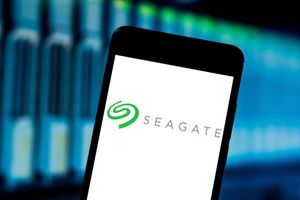Survey shows early-career employees embrace AI as a career accelerator as the technology reshapes work; 34% say their company is missing bigger opportunities to automate
Beamery, the leading AI platform for workforce transformation, today released new research that reveals nearly all (99%) C-suite executives indicate their organizations are currently automating tasks, yet many risk overlooking key factors in automation decisions. In fact, 34% of employees surveyed say their company is automating useful things but missing bigger opportunities. More than a third (37%) of HR leaders say one of the biggest barriers their organization faces in preparing the workforce for AI is that there is not enough clarity on what people actually do day to day.
The biggest challenges C-suite leaders say their organizations face when deciding which tasks or roles to augment with AI are choosing the right tasks to automate (49%) and ensuring data quality and availability (48%). Only 29% say they look at task duplication across roles, departments, or functions when identifying which tasks to automate. Less than half are looking at cost reduction potential (49%), time reduction potential (46%), and task simplicity or repetitive nature (45%).
“We’re in the era of the Great AI Workforce Redesign, where organizations are reimagining work through the lens of intelligent automation to unlock new value,” said Has Dosanjh, CEO of Beamery. “AI represents an incredible opportunity to enhance how people and businesses perform – it’s already showing real impact when used with purpose and clarity. Yet many leaders still overestimate their visibility into how work actually happens, which limits the return on these investments. When leaders have deep clarity on the specific tasks, skills, and workflows powering their business, and where humans and technology each excel, they can deploy AI in a way that elevates talent, accelerates innovation, drives profitable growth, and strengthens the organization’s competitive position.”
The proprietary research – Inside the Human-Machine Economy: A 2026 Report – explores how artificial intelligence is rapidly reshaping work across large enterprise organizations. Most C-suite executives (95%) say the current AI-driven transformation is the biggest workforce change of their careers. Ninety-eight percent of C-level executives report their companies have made workforce changes in the past year due to AI adoption, including redeploying talent to other roles or functions (56%), hiring AI-skilled employees (51%), reskilling or upskilling staff (49%), and creating new roles or job categories (46%).
Beamery’s research is based on a survey of more than 170 C-suite executives, 115 HR leaders (directors through CHROs), and 200 early-career employees across the U.S. at organizations with more than 5,000 employees. The report dives deeper into how C-suites, HR leaders, and employees are navigating the Great AI Workforce Redesign.
Key findings include:
-
More than half (55%) of C-suite executives plan to add new executive roles like chief AI officer or chief automation officer in 2026 – signaling AI has become a board-level strategic priority.
-
Nine in ten (91%) C-suite leaders expect their organizational charts to change in 2026. Forty-three percent of C-suite executives expect to employ fewer entry-level workers in 2026 and 26% say the same about middle managers, while 26% expect to consolidate or eliminate certain senior leadership positions. Conversely, 93% of C-suite executives anticipate new roles or departments will be created in their organization within the next six months as a direct result of AI implementation.
-
Retention is rising as AI empowers employees. Seventy-three percent of early-career employees said AI adoption at their company has made them more likely to stay with their current employer. They are more likely to stay because AI is creating massive growth opportunities at their company (66%), they are more engaged due to new career and skill development opportunities (60%), and they are moving into higher-value work that improves job satisfaction (47%).
-
Employees are embracing AI as a career accelerator. Eighty-six percent of early-career employees believe AI will create better career opportunities for them within the next three years. An additional 80% said that their career path or advancement opportunities at their company are clearer now compared to two years ago, before AI was pervasive.
- The AI push is about competitiveness and profitability as much as innovation. C-suite leaders say the two macro factors having the biggest influence on their organization’s AI task automation strategy are competitive pressure (45%) and economic conditions and cost pressures (46%).
HR: A Missing Voice at the AI Strategy Table
Only 12% of C-suite leaders surveyed say the CHRO has the most influence in making key decisions around AI and workforce transformation in the organization. CEOs lead the charge (81%), followed by chief digital officers, chief transformation officers, or chief automation officers (50%).
Nearly 80% of HR leaders say they now have more input into decisions about which tasks are targeted for automation than they did two years ago. But the data shows a clear disconnect on the timing of when they are pulled in. While 60% of C-suite leaders say the CHRO or equivalent highest-ranking HR executive gets involved in decisions about how AI and automation affect headcount, roles, and responsibilities from the outset (during AI strategy development), only 30% of HR leaders agree. Most HR teams report being brought in during AI implementation planning (48%) rather than from the outset.
“Our research shows CHROs and HR leaders are frequently brought in only after key AI decisions are made, which can undermine the ROI of these initiatives. True AI-driven workforce transformation is an exciting opportunity – it’s as much about empowering people as it is about deploying new technology. When HR leaders are involved early, they help ensure AI enhances the skills, culture, and potential that make organizations thrive. This is a moment for HR to step forward and show how their insights can shape strategy and unlock lasting business value,” added Dosanjh.
Access the full report to dive deeper into the human-machine economy.
About Beamery
Beamery is the AI platform for workforce transformation: We are trusted by global enterprises to plan, build, and optimize their future of work.
By connecting skills and task intelligence to real-time workforce data, Beamery’s agentic talent advisor enables businesses to hire, redeploy, and reskill talent – and adapt to change with confidence.
We’re on a mission to create a world where employee skills and contributions are seen and understood, access to opportunity is equitable, and every organization can responsibly unlock the full potential of its workforce with AI.
View source version on businesswire.com: https://www.businesswire.com/news/home/20251118133656/en/
Contacts
For more information, visit beamery.com or email press@beamery.com.








